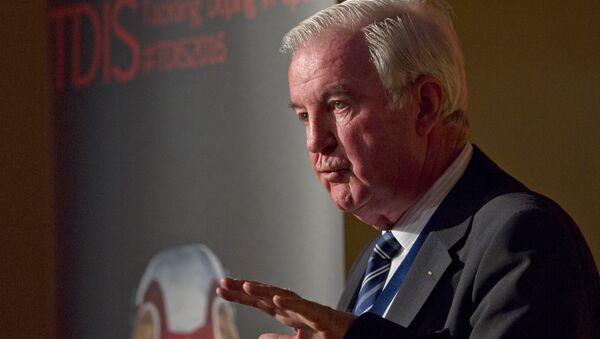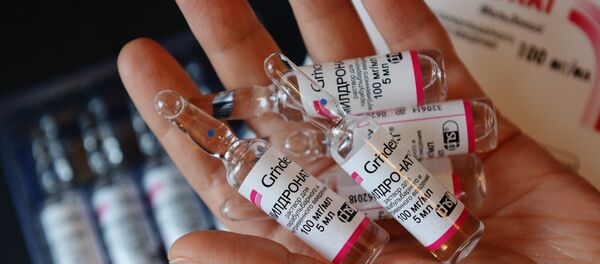MONTREAL (Canada), (Sputnik) — The activities of anti-doping agencies did not have political nature, because such bodies were interested in ensuring Russia comply with the international rules and processes, but not in the political issues, according to the agency's president.
"As far as we concerned, the information is not a political game at all. The information comes from people, who are trying to help Russia become compliant," Reedie told R-Sport.
During the last few years, Russian athletes were involved in a number of doping-related incidents.
In November 2015, WADA presented a report, accusing Russia of numerous breaches of global anti-doping regulations and recommended the country be banned from international athletics competitions, which then led to the All-Russian Athletics Federation (ARAF) suspension from the International Association of Athletics Federations (IAAF).
In March, a number of prominent Russian athletes were tested positive for meldonium, medicine added to the list of banned substances on January 1, 2016 by WADA.
The most recent accusations against Russian athletes took place on Thursday, when US media reported, citing then-director of the Russia-based antidoping laboratory Grigory Rodchenkov, that dozens of Russian athletes at the 2014 Winter Olympics in Sochi, including at least 15 medal winners and the entire women’s hockey team, had been using doping throughout the Games.



